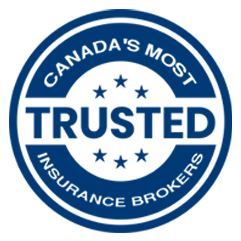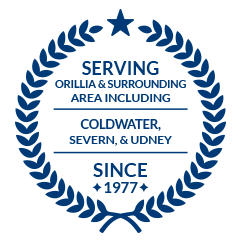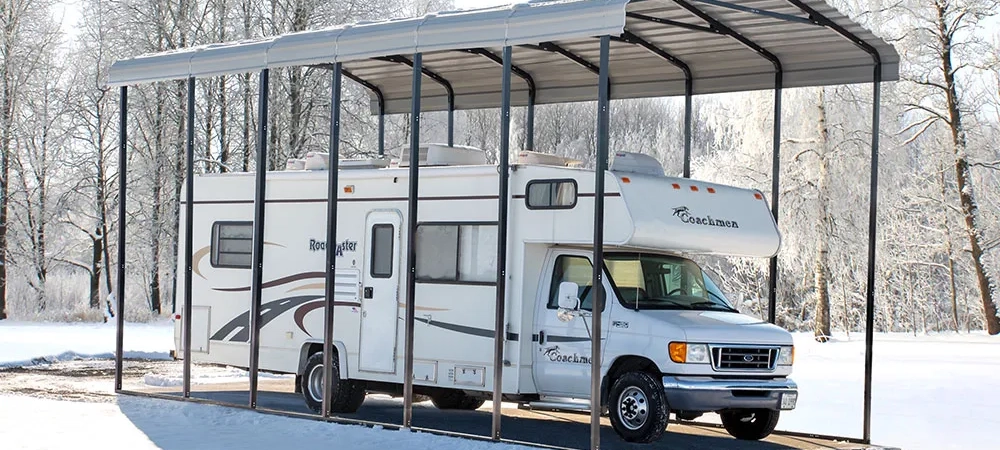How Much Is RV Insurance
Whether you’re planning summer road trips or full-time RV living, protecting your motorhome or trailer with the right insurance isn’t optional—it’s essential. RVs are both vehicles and mobile homes, and that means they come with unique coverage needs.
Here’s what you need to know about the cost of RV insurance—and what affects it.
Related Article: How Much Is Sailboat Insurance in Ontario
Average Cost of RV Insurance in Ontario
RV insurance rates in Ontario can vary widely based on the type of RV you own, how you use it, and the coverage you choose. On average:
- Standard travel trailers (non-motorized): $300–$600 per year
- Class B motorhomes (camper vans): $700–$1,200 per year
- Class C motorhomes: $1,000–$1,800 per year
- Class A motorhomes: $1,500–$3,000+ per year
These are typical ranges, but your premium could be higher or lower depending on your specific situation. Full-time RVers, for example, will pay more than those who only use their RV a few weekends a year.
What Affects the Cost of RV Insurance?
RV insurance premiums aren’t one-size-fits-all. Several factors come into play when determining your rate, from the type of RV you own to how and where you use it. Here’s what insurance providers consider when calculating your cost.
1. Type of RV
Insurance costs vary by RV class:
- Class A: Large, luxury motorhomes that need more coverage due to their size and value.
- Class B: Smaller, van-style RVs—less expensive to insure.
- Class C: Mid-size motorhomes built on a truck chassis; rates fall between Class A and B.
- Towable trailers: Insurance is generally cheaper since they’re not motorized.
2. Usage
How you use your RV matters. Occasional weekend travel will cost less to insure than full-time RV living. The more time your RV spends on the road, the higher the risk—and the higher the premium.
3. Value and Age
The newer and more valuable your RV, the more it will cost to insure. Older RVs with less market value may cost less, but coverage limits might be lower, too.
4. Driving Record
Just like with auto insurance, your driving history plays a role. A clean driving record helps keep your premiums down. If you’ve had claims or traffic violations, expect to pay more.
5. Coverage Level
Do you want basic liability or full coverage with collision and comprehensive protection? The more coverage you choose, the higher the premium—but also the better the protection in case of theft, fire, or accident.
6. Storage and Security
Where and how you store your RV when it’s not in use can also impact your rates. Storing it in a secured location may help lower costs. Anti-theft devices, alarms, and GPS trackers can lead to additional discounts.
Related Article: What Determines Your Auto Insurance Rates: Factors That Affect Your Premiums
What Does RV Insurance Cover?
RVs are unique—they’re not just vehicles; they’re also mobile living spaces. Because of this, RV insurance needs to cover more than what standard auto insurance does. A good RV policy blends the protections of auto insurance (for when you’re on the road) with elements of home insurance (for when you’re parked and living inside the unit).
Here’s a closer look at what a typical RV insurance policy includes—and the optional add-ons you might want to consider based on how you use your RV.
Mandatory Coverage
In Ontario, motorized RVs must have:
- Third-party liability: Covers damage or injury you cause to others
- Accident benefits: Covers medical costs and loss of income
- Direct compensation – property damage (DCPD): Covers your damage when you’re not at fault
- Uninsured automobile coverage: Protects you if you’re hit by an uninsured driver
Optional Coverage
- Collision: Covers damage to your RV from accidents, regardless of fault
- Comprehensive: Covers theft, vandalism, weather damage, and fire
- Contents coverage: Protects personal belongings inside the RV
- Roadside assistance: Helps with breakdowns, towing, or flat tires
- Full-timer’s coverage: For RVers who live in their vehicle year-round
Not all policies include the same coverage by default, so it’s important to discuss your needs with a broker.
Trailer Insurance vs. Motorhome Insurance
If your RV is towed (like a travel trailer or fifth wheel), it’s usually covered under your auto policy’s liability coverage while on the road. If you own a towable RV like a travel trailer or fifth wheel, you’ll likely need separate trailer insurance to cover physical damage and contents while it’s parked or in storage. But you’ll need a separate trailer policy for theft, damage, and contents protection—especially when it’s parked or stored.
Motorhomes, on the other hand, require a full auto insurance policy since they’re driven, not towed.
At Ron Johnston Insurance, we can help you find the right mix of policies to cover your RV and your vehicle without overlapping or missing key protections.
Related Article: How Much Is Car Insurance in Ontario? A Comprehensive Guide
Ways to Save on RV Insurance
Here are some practical ways to cut costs without cutting corners:
1. Bundle Your Policies
If you already have home, auto, or life insurance with the same provider, adding your RV policy could earn you a multi-policy discount. Many insurers offer savings of 10% or more for bundling, and bundling also simplifies your payments and claims process by keeping everything under one roof.
2. Increase Your Deductible
Choosing a higher deductible can lead to a lower monthly or annual premium. Just make sure you choose a deductible you’re comfortable paying in the event of a claim—it’s a balancing act between risk and reward.
3. Use Storage Protection or Seasonal Coverage
If you only use your RV during certain months—like summer road trips or weekend getaways—it doesn’t make sense to pay full premiums year-round. Many insurance companies offer seasonal or storage-only policies. These reduce your coverage while the RV is parked and not in use (often during the winter months), lowering your premium.
- Take a Defensive Driving Course
By completing an approved defensive driving or RV safety course, you may qualify for a discount. These courses cover topics like how to handle large vehicles, avoid common RV accidents, and manage emergency situations. Not only can this lower your insurance rate, but it also helps you drive with more confidence and skill.
5. Install Safety and Anti-Theft Features
Just like with auto insurance, having safety and security systems installed on your RV can lead to lower premiums. Here are some upgrades that may qualify you for discounts:
- Anti-theft systems (alarms, steering wheel locks, immobilizers)
- GPS tracking devices to locate your RV if it’s stolen
- Smoke and carbon monoxide detectors for fire safety
- Tire pressure monitoring systems to prevent blowouts
- Surge protectors and electrical monitors to prevent power damage
Let your insurance provider know if your RV is equipped with any of these features—you could save more than you think.
6. Maintain a Clean Driving Record
Avoiding traffic violations, at-fault accidents, and claims helps you qualify for the best possible pricing. Some insurers also offer loyalty discounts if you go several years without a claim.
If multiple drivers are listed on your RV policy, their records matter, too. Make sure everyone behind the wheel is licensed, insured, and responsible.
7. Limit Your Mileage
Insurance companies assess risk based on how often and how far you drive—less time on the road usually means less risk. Tracking your annual kilometres accurately can help you access this type of savings.
8. Pay Your Premium Annually
Some insurers charge service or administrative fees for monthly billing. Paying your premium annually in one lump sum can sometimes shave a few dollars off the total cost. It’s a simple way to save if your budget allows for it.
Related Article: How Can I Save Money on My Insurance?
Do You Need RV Insurance If You Don’t Drive It?
Yes—especially if you store it at a site or use it as a seasonal home. Damage from fire, storms, theft, or vandalism can still occur while your RV is parked. A comprehensive policy ensures you’re covered year-round, even if your RV never leaves the lot.
Secure Your Adventure
RV insurance in Ontario can cost anywhere from a few hundred dollars to several thousand per year, depending on the RV type, usage, and coverage. But it’s more than just a policy—it’s peace of mind. Whether you’re a weekend camper or a full-time traveler, having the right insurance ensures you’re covered for the unexpected.
Contact Ron Johnston Insurance today to get a personalized quote and expert advice on protecting your RV, your belongings, and your adventure.
- March 2025
- February 2025
- January 2025
- December 2024
- November 2024
- October 2024
- September 2024
- August 2024
- July 2024
- June 2024
- May 2024
- April 2024
- March 2024
- February 2024
- January 2024
- December 2023
- November 2023
- October 2023
- September 2023
- August 2023
- July 2023
- June 2023
- May 2023
- April 2023
- March 2023
- February 2023
- January 2023
- November 2022
- October 2022
- September 2022
- August 2022
- July 2022
- June 2022
- May 2022
- November 2021
- January 2018
- December 2017
- November 2017
- October 2017
- September 2017
- August 2017
- July 2017
- May 2017
- April 2017




